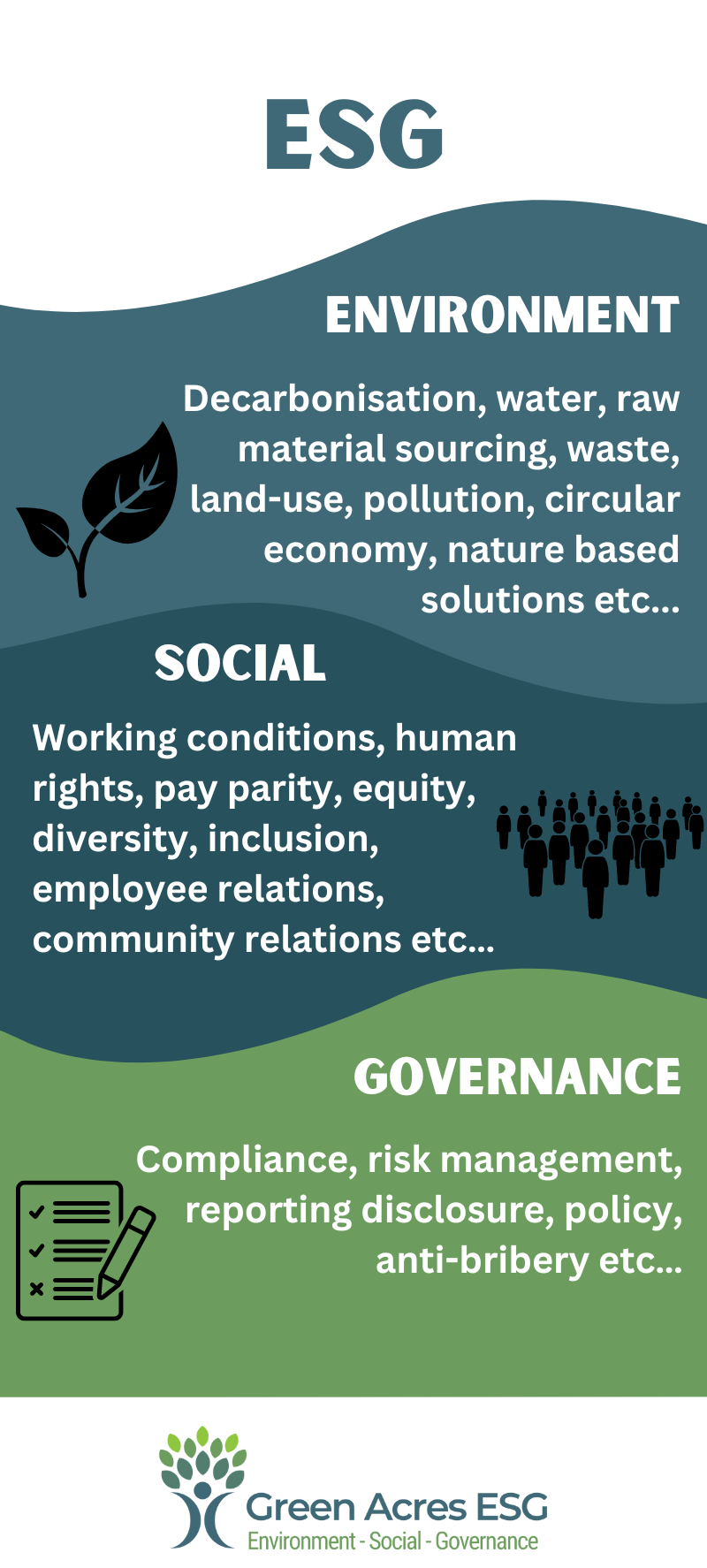
Increasingly investors, lenders, regulators, customers and employees are looking to businesses to have responsible practices, that do not harm the environment, that value employees by providing ‘decent work’* and are transparent about their practices.
When a company incorporates ESG into their strategy, it mitigates risk, enhances compliance and provides greater transparency to be comparable to investors, which in turn adds value.
ESG can also be referred to as Sustainability, the distinction between the two is down to a simple marketing approach, customers and employees will recognise the term sustainability, but investors, lenders and regulators take a more holistic approach which includes the governance around sustainability, therefore calling it ESG. Whether you call it sustainability or ESG, the fundamental idea is that companies should take into account their social and environmental risks, then mitigate them to ensure long term survival.
ESG is still in a process of standardisation, there are lots of different ways a company can act on, report and demonstrate their ESG efforts, these are becoming more streamlined as the reporting standards mature. Decreasing room for greenwashing and increasing transparency and holding companies to account for their activities. Some of the more common reporting standards available are; CDP, GRI, SEDEX, EcoVadis, TCFD, SASB, and IFRS Sustainability Disclosure Standards.
SME’s may not be subjected to the same ESG scrutiny as larger companies, however good ESG strategy and practices can hold just as much weight as ESG risks affect all companies, an SME may not be able to recover as easily from a disruption in the supply chain or not attract enough investment without good ESG credentials.
ESG is an investment in the future success of a company, contact us today to discuss your ESG journey
*Decent work is defined by the International Labour Organization as; ‘Decent work sums up the aspirations of people in their working lives. It involves opportunities for work that is productive and delivers a fair income, security in the workplace and social protection for all, better prospects for personal development and social integration, freedom for people to express their concerns, organize and participate in the decisions that affect their lives and equality of opportunity and treatment for all women and men.’
Decent work (ilo.org)
